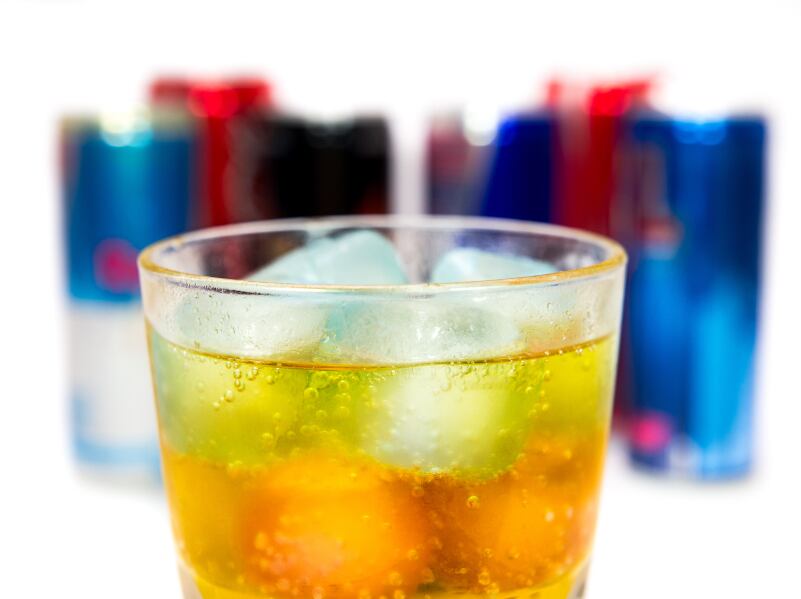Lobby groups have been shouting for the out and out ban of some energy drink products as well as age restrictions. These ideas have even become government policy.
France reluctantly removed a 12-year ban on Red Bull’s taurine recipe in 2008 in absence of conclusive proof that taurine was harmful. More recently Lithuania banned the sale of caffeinated energy drinks to under 18s.
Meanwhile a consumer group in Germany has demanded a similar age restriction as well as the closure of gap between the regulation of food and drinks and food supplements, something which could mean a de facto ban of energy shots there.
Yet with all this political hullabaloo it’s important to remember that most member states – including Lithuania and France – haven’t even established mandatory maximum upper limits for added caffeine in food, drinks and food supplements and big differences exist in how energy shots are categorised.
Before thinking about more paternalist solutions we should be laying this regulatory foundation, upon which regional decisions could be based.
Perhaps the over-caffeinated powers that be, and pressure groups alike, have been getting over excited because to me imposing bans before maximum limits seems like running before we can walk.
With the long-awaited risk assessment from the European Food Safety Authority (EFSA) now drafted – setting a safe single-dose limit of 200 mg and daily intake limit of 400 mg for the general population – this year seems like a ripe and ready time to do that.

If that draft stands, it will send a pretty unified message to Europe. But there’s also a danger that it will become just another floating document joining the risk assessments of member state authorities.
And let’s not forget why we conduct risk assessments in the first place: to address fears that public health may somehow be in danger.
There has been some progress with the Food Information for Consumers (FIC) regulation, instated December last year, which specified that all added-caffeine foods and drinks containing over 150 mg/l of caffeine were required to clearly carry the warning: "High caffeine content. Not recommended for children or pregnant or breast-feeding women."
This mandatory message is a good start towards EU harmonisation, but otherwise member states are in disarray.
Anyone familiar with the squabbling of European harmonisation will know this task is a big one, and it comes with its own challenges of generalising a limit when reactions to caffeine may differ according to the individual. It will mean an agreement on the available data and in some cases a reduction or increase of the existing member state recommended or mandatory limits – and all the usual questions around national sovereignty that goes along with any pan-EU mandate.
So, let’s run through a few examples of differences in upper limits, recommendations and category definitions.

Germany sets a maximum upper limit of 320 mg/l for energy drinks, but there is no such mandatory limit for supplements, which by its definition includes energy shots.
Estonia assesses the status of energy shots on a case by case basis and has no legal maximum limit for caffeine in food or food supplements. Instead its guide to good marketing practice for energy drinks, valid from December last year, recommends that caffeine content from whatever source should not exceed 300 mg per ’pack’ or provide a daily dose of over 300 mg.
The caffeine content of a single can of Red Bull is 80 mg/250 ml, while an average cup of coffee contains around 95 mg.
Finland classifies a caffeine product as a supplement if it is meant to be taken in small doses and the amount of energy obtained from it is “not significant in terms of the diet”. It said the amount of energy obtained is not significant if it does not exceed 200 kJ (50 kcal) per daily dosage, according to the product’s maximum dose. By caffeine content, energy shots less than 100 ml per day could be regarded as food supplements. Either way, maximum upper limits for caffeine are not written into Finnish law, but recommendations state that a 'toxic dose' of caffeine is 20 mg/kg in terms of a consumers body weight, meaning for an adult weighing 60 kg a toxic dose would be 1200 mg (15 cans of Red Bull). Meanwhile the 'therapeutic treatment dose' for those aged over 15 is about 300 mg/day.
Even Lithuania, which you might have thought would be pretty stringent in this area given its recently enforced ban, does not have a mandatory maximum upper limit for caffeine in supplements or food products. The state also leaves the categorisation of products as food and drink or food supplement up to the manufacturer.
Ireland does not have a mandatory upper limit for caffeine, but is clear that energy shots are not classified as food supplements since they do not fit their description of concentrated sources of nutrients or other substances with a nutritional or physiological effect like vitamins or minerals.
Sweden doesn’t have a maximum limit for foods, drinks or supplements either, but bans the combination of synefrine and caffeine and does not classify energy shots as supplements.
Spain’s mandatory upper limits? No existen. France? Non plus.
Long live the harmonised European market, right?
